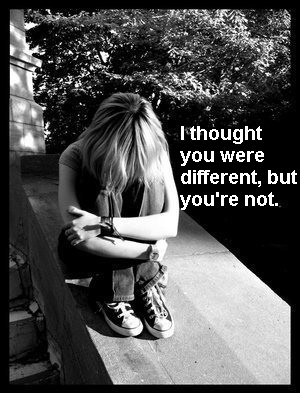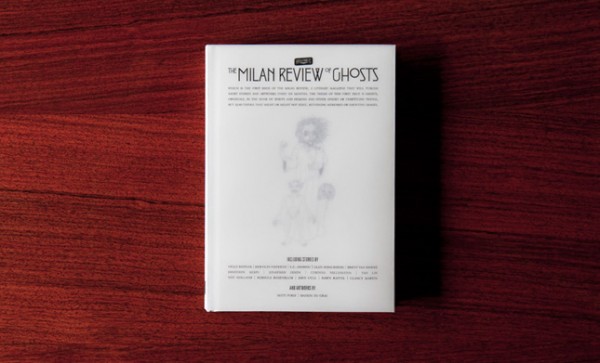“A Dozen Dominants: The Current State of US Indy Lit”
[Update: Some reader comments below prompted me to write a follow-up post.]
I was asked over the summer to contribute a critical article to the online UK journal Beat the Dust; they wanted me to write on the current state of US literature. I “narrowed that down” to indy lit (small press publishing, whatever you want to call it)—still an impossibly huge topic, of course. So I ended up proposing twelve dominants that I’d argue govern the current indy lit scene (at least as best as I can see things from where I’m sitting—Chicago, USA, 2011).
“Dominant” is a term I stole from the Russian Formalists; it essentially means a feature or aspect of a text that most people feel that the text, to be valid, should demonstrate or otherwise include. (e.g., rhyme was often a dominant in English poetry until the 20th century and the advent of free verse; now the situation is mostly the opposite.) (See also this.) Below, I’ll list “my twelve” dominants, but please see the full article for a more thorough explanation…
Tao Lin Tweets a Non-Meta Tweet
Earlier today, Tao Lin tweeted an entirely non-meta tweet.
in ~’93 in ~5th grade, i think, there was a ‘meme’ at my school of throwing things at (or ‘simply’ hitting) ppl then saying ‘ricochet’
Notice the lack of self reference or promotion, reference to the nature of said tweet, bracketed ambiguous/conceptual “thought[s],” esoteric ongoing commentary of [something] semi-contextualized via hashtag.
Last month, The New York Observer reported that, for his third novel, Lin was working in what he describes as “Lorrie Moore’s prose style and tone.”
This tweet seems to suggest that very notion. What I mean is, I could see a thought like this appearing in the inner monologue of a Lorrie Moore character, is what I mean. Or I guess even that it seems like something from Bed.
You guys got anything else to say?
An excellent interview with Ben Lerner by Tao Lin is an online exclusive at the Believer.
Tao Lin’s next novel, reportedly titled Taipei, Taiwan, has been sold to Vintage. More info at the Observer, “I honestly feel, to a large degree, like me and everyone else are close to death and that the awareness of this has, to me, precluded thoughts of “making it” (this is a theme of the novel).”
POP: A Polemic on a Contemporary Language-Based “Objectivity”
 I do not like metaphor. My personal education pertaining to literature takes a very French bent, and it is here that Robbe-Grillet himself, king of the nouveau roman one could say, has denounced metaphor, preferring, I suppose, some sort of metonymy, but–if anything–participating in the creation of a style of fiction in which the surface is more important than a subtext.
I do not like metaphor. My personal education pertaining to literature takes a very French bent, and it is here that Robbe-Grillet himself, king of the nouveau roman one could say, has denounced metaphor, preferring, I suppose, some sort of metonymy, but–if anything–participating in the creation of a style of fiction in which the surface is more important than a subtext.
I think that this adherence to the surface, at least in terms of language, is good, positive, because it removes an additional level of signification, which brings us, as a reader, closer to the experience the language itself is hiding, carrying, revealing. Though often, in the creation of atmosphere, metaphor can be adequately used to help evoke a mood, I feel like there are often more interesting ways to do this (and I suppose that here, by “interesting,” I mean “heterogeneous, diverse, wildly more creative”).
READ MORE >
“Lin mumbled that he and Johnson aren’t really speaking to each other…Lin said that it was because Johnson “didn’t approve of the relationship” in Lin’s latest novel.” Should a publisher like the books they publish? Shouldn’t they?
The Milan Review

This mag looks gorgeous. The Milan Review is new and the first issue is packing: stories by Dave Cull, Jonathan Dixon, Glen Hirschberg, Noy Holland, Jonathon Keats, Tao Lin, Clancy Martin, E.C. Osondu, Dawn Raffel, Nelly Reifler, Rebecca Rosenblum, Deb Olin Unferth, Corinna Vallianatos and Brent Van Horne and illustrations by Matt Furie and Maison Du Crac. Click through for more pictures and order info. Italy makes fetishworthy objects.
Tao Lin on the Future of the Novel
At the Observer, Tao Lin considers the future of the novel.
“I feel less pressured to consider, engage with or respond to the development or advancement of the novel than to undistractedly view each possible novel as uniquely occupying an area on something spherical (like how humans on a round Earth don’t feel able to “advance” by walking in the correct direction, unlike they would in a side-scrolling video game or flat world, unless they’ve self-defined a goal like to live in Manhattan, but are required to be “productive” in other ways), where, though, as conscious beings with urges created by evolution, the default mode of perception is to distort it into a line, to discern an illusion of progress or direction.”
What do you think.
while we’re at it…
Shoplifting from American Apparel is being made into a movie. Here is a link to the kickstarter page. All of the information is there. It’s being done by the same people who did Noah’s The Human War and I think it looks pretty exciting. I’m going to donate. I suggest you do the same if you want to. Don’t donate if you don’t want to. Smoke weed if that’s your thing. I’m disabling comments because I don’t care.
Long Ass Interview with Tao Lin part 2 of 2

[Hi, this is Stephen Tully Dierks. I interviewed Tao Lin re his second novel, Richard Yates. This is part two of the interview. You can read the first part here.]
Are there any other artists with whom you’d like to collaborate, either directly or indirectly?
I would like to draw the album art for any band that I like. I would like to be the cover artist for an issue of McSweeney’s or Best American Non-Required Reading.
I think I feel like not collaborating on writing things at this point, unless it is a letters-type thing, like hikikomori with Ellen Kennedy.
Haley Joel Osment states in the book that Nobel Prize winners used to be depressed existentialists and now they are sociologists. Could you expound on this idea?
I think he was being sarcastic to a large degree. He maybe had some vague idea that people like Camus, Hermann Hesse, Sartre used to win the Nobel Prize and that there has been some kind of change, and that different kinds of writers now win the Nobel Prize, ones focused more on how people are like within a culture or a society, rather than within the universe, maybe, in that the “write-ups” about them seem, to Haley Joel Osment, to always mostly focus on their political or gender-issue or cultural themes (Haley Joel Osment assumes, though, that that’s just the journalists “doing their thing” and not an accurate portrayal of the writers; for example many articles connect Kafka to Prague rather than to “existential issues” or something).
Who do you think Haley Joel Osment would say is his favorite Nobel Prize winner for literature?
Maybe Knut Hamsun.
By what writer do you feel most interested in reading a review of Richard Yates for what venue?
Maybe a 5000-word review by Dennis Cooper that is somehow in New York Times Magazine (don’t think they publish reviews).
October 13th, 2010 / 10:57 am

